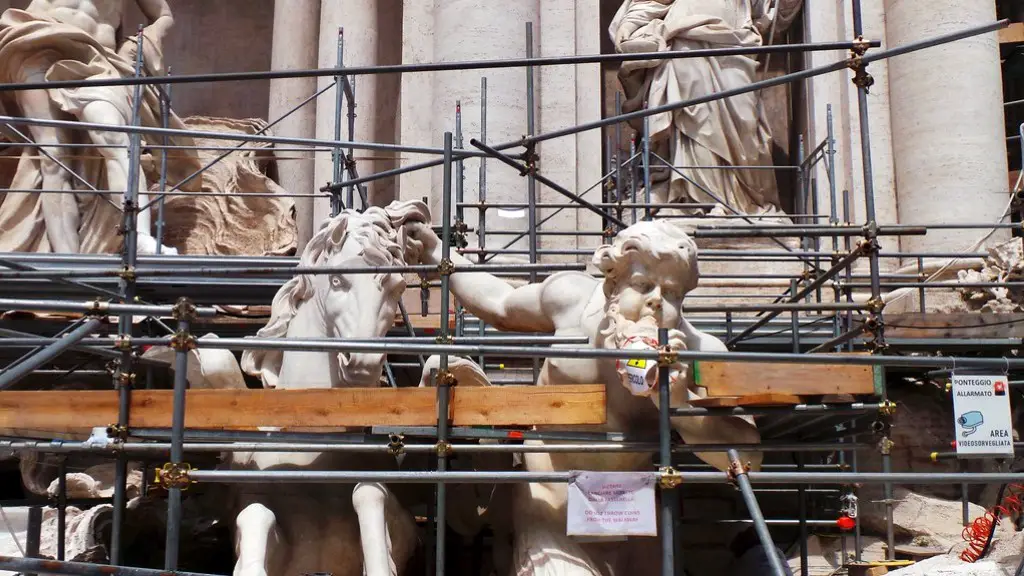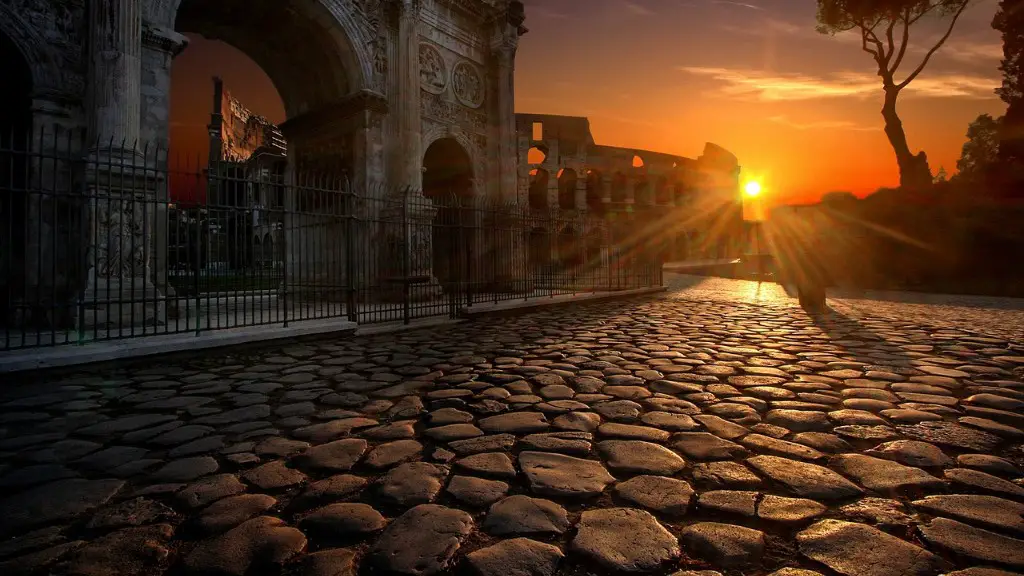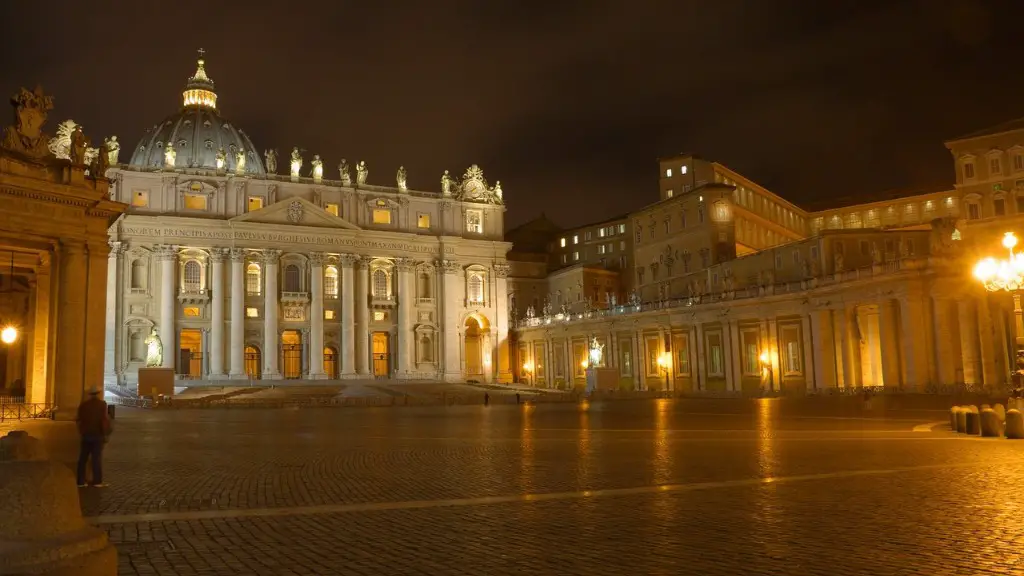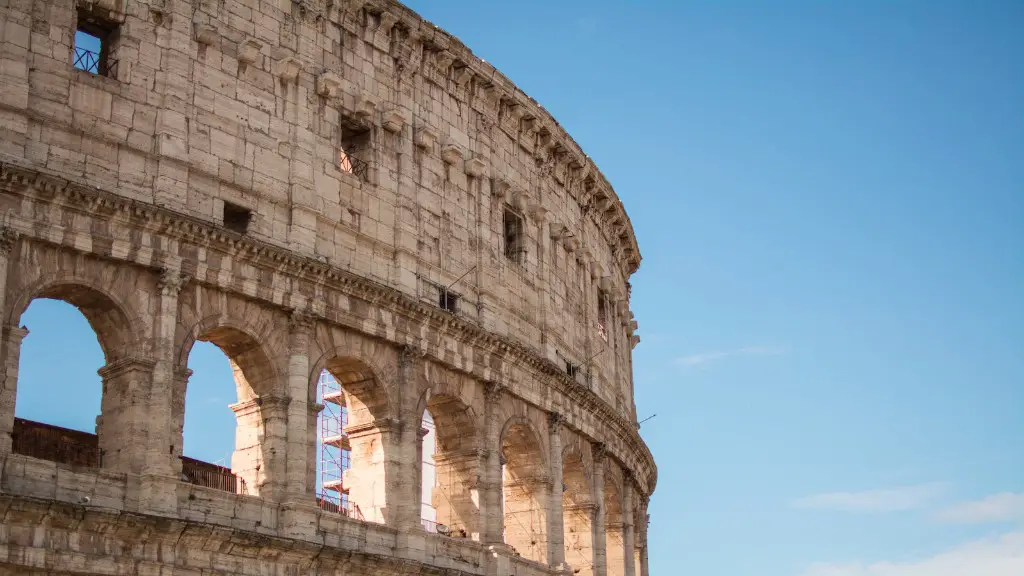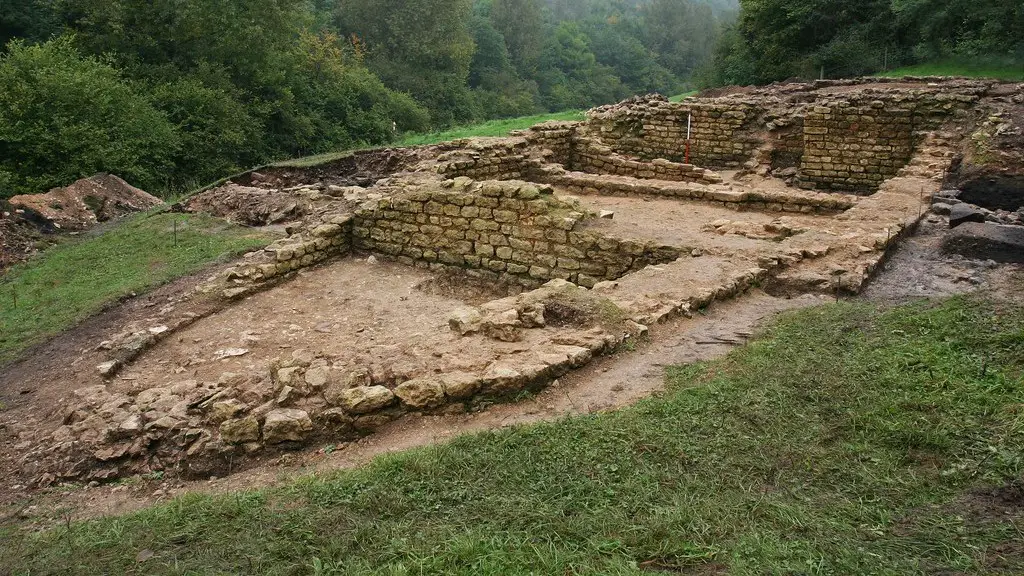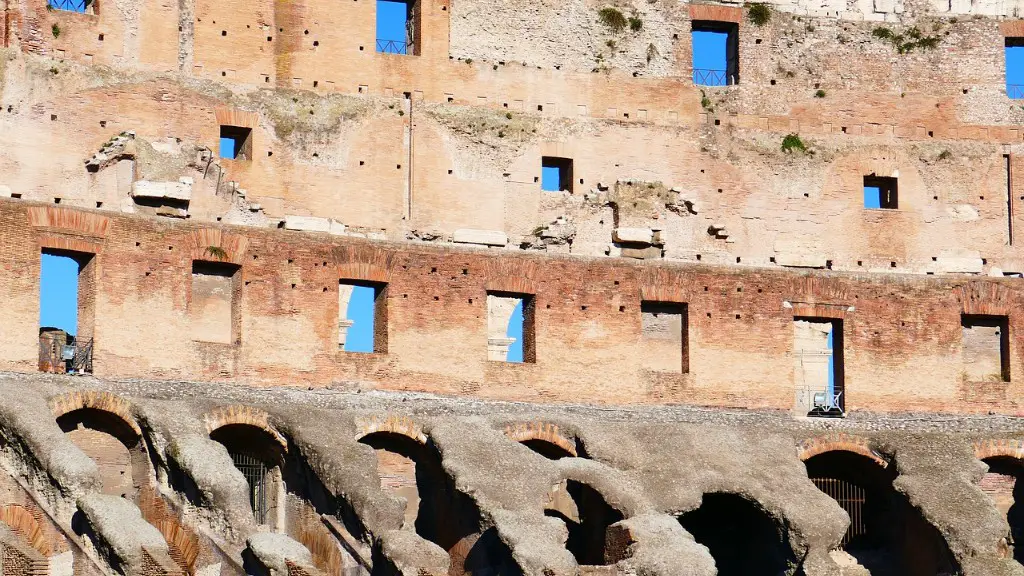Religious Beliefs Surrounding the Afterlife
In ancient Rome, the afterlife was a much discussed and debated topic, one tied inexorably to religion and the various gods worshipped by the people. Much of the beliefs surrounding the afterlife revolved around the Roman religious doctrine of the pax deorum – the Pax, or Peace, of the gods – a restoration of harmony between mortals and deities. It was believed that in order to have a successful life in the afterlife, one had to keep this peace in the mortal world, a peace that was only achievable through rituals, honoring certain gods as well as one’s ancestors.
The concept of divine judgement was also central to beliefs about the afterlife in ancient Rome. A belief in the underworld god of Orcus – the “keeper of broken oaths” – was common, with it being believed that the souls of sinners were sent to his realm for punishment. For those believed to have kept the pax deorum, however, a more positive existence in the afterlife was believed to await them. It was also believed that the dead could be reincarnated, and that their fates would be determined by their deeds on Earth.
In essence, the afterlife in ancient Rome was deeply intertwined with the religious beliefs and rituals of the time. As historian Robert Garland writes in his book, The Greek Way of Death: “In their religion, the Romans believed that the afterlife held both blessings and punishments beyond the grave, depending upon one’s conduct during life.”
Funerary Customs
Funerary customs were heavily informed by the Roman belief system surrounding the afterlife, and varied greatly depending on one’s place and means in society. As early as the 8th century BC, Romans had established a system of elder cremation, accompanied by funerary rites and offerings to the gods, in the hope of ensuring the safe passage of the deceased to the realm of the dead.
More elaborate funeral ceremonies were also held for members of the upper classes. These could range from sacrificing a bull or a sheep to honor the deceased, to such extravagances; as setting up a temporary banquet hall with an effigy of the dead person in attendance. Thus, the after-life of the Roman elite was given more pomp and ceremony than for the average citizen.
One of the most interesting aspects of Roman funerary customs was the practice of public funeral eulogies. It was believed that by gathering together to talk about the merits and virtues of the deceased, the gods would look favorably on them and grant them a blissful afterlife. This practice was particularly important for people of high social status and those believed to have led saintly lives.
Roman funerary customs, based as they were on religious belief, were designed to ensure the deceased a peaceful and happy afterlife, whatever their rank in life.
The Influence of Greek Beliefs
The influence of Greek religious belief systems was a major factor in the development of Roman thoughts on the afterlife. It was thought that the gods of both cultures were fundamentally the same and so, it was believed, the spiritual realms of each would be very similar. This belief is evidenced by the fact that many of the gods worshipped by the Romans – such as Apollo, Dionysus and Hades – were of Greek origin.
In particular, the Romans adopted the image of the Greek Underworld – a place of punishment and reward. It was believed that a person’s future existence in the afterlife would be determined by their deeds on Earth, and that punishment for sins committed would be meted out in Hades. It was also believed that those who had led an exemplary life could ascend to the Greek Elysium, where they would be rewarded with an eternal afterlife of happiness and peace.
The Romans also incorporated many of the Greek views surrounding the rituals and festivities associated with death, including funeral banquets and rites of mourning. By adopting both the spiritual beliefs and the more practical aspects of Greek funerary customs, the ancient Romans were able to gain a more comprehensive understanding of the afterlife.
The Afterlife in Roman Literature
Famed Roman author Virgil, in particular, made extensive use of Greek and Roman views on the afterlife in a number of his works. In Virgil’s Aeneid, he portrays the Greek judgment of the afterlife as a solemn, dignified process, where the Roman gods weigh the deeds and virtues of those seeking admittance into either Elysium or Hades. By doing so, he provides a picture of what a successful afterlife could look like.
Other Roman authors, such as Ovid and Apuleius, likewise frequently allude to the afterlife in their works. Both authors, most notably, mention the idea of reincarnation – with Ovid’s Metamorphoses containing several references to the transmigration of souls. Thus, Roman literature helped to solidify existing beliefs about the afterlife and provided a vivid description of what life could be like for those who had been granted a place in the spiritual realm.
Mortality in the Afterlife
Though the Romans believed in an afterlife, they did not believe that the dead were truly immortal. It was thought that, while in the spiritual realm, the dead would age and eventually die just like they would have in the mortal world. This meant that the dead could, potentially, still be affected by the physical world, and could even have children with gods or mortals, who in turn could be sent back to Earth as a reincarnation of their ancestor.
It was also believed that those in the afterlife could still be connected with those still living in the mortal realm, and that a person could still have an influence on their own descendants through their actions in the spiritual realm. This belief was particularly powerful in the Roman world, and served as a driving force in ensuring that one’s life was kept in good order.
By incorporating both Greek and Roman beliefs about death and the afterlife, the ancient Romans were able to develop a complex and nuanced view of the hereafter. While no one fully understood what awaited those who passed into the spiritual realm, the general consensus was that a proper and honorable afterlife could be had through the observance of funerary customs and the maintenance of a harmonious relationship with the deities.
Understanding the Roman Soul
One of the most fundamental concepts that underpins Roman beliefs on the afterlife is the notion of animus. This was the belief that every living person had an elemental soul that could continue to exist after death, regardless of whether or not it had been properly prepared for the afterlife. This meant that, while the fate of a person’s mortal soul would be determined by their actions on Earth, their elemental soul could still ascend to the gods or even reincarnate back into the living world.
The idea of animus was used to explain certain beliefs surrounding the afterlife, in particular that the spirits of the dead would remain close to the living in the form of ancestral spirits. These souls were thought to be able to influence the living, and to pass on their knowledge and wisdom from beyond the grave. It was also thought that these ancestral spirits could be invoked through rituals and offerings, allowing them to communicate with the living and share advice.
In this way, the concept of animus helped to provide the ancient Romans with a more comprehensive understanding of the afterlife, and of the ways in which the dead could still influence life in the living world.
The Significance of Memorialization
Given the importance of ancestor worship in Roman culture, the practice of memorialization was essential for ensuring a successful afterlife. It was believed that in order to gain admittance into the realm of the gods, one had to have their deeds remembered and honored. This could be achieved through some form of memorial structure, such as a monument or burial site.
By creating a memorial, the dead could be given new life in the spiritual realm, as their deeds and influence would be remembered and carried on by those living in the mortal world. Thus, memorialization helped to ensure that the dead were remembered and respected, and that their legacy would live on long after their death.
Memorialization also had a more practical purpose; it was thought that, by offering prayers and offerings to the dead at their shrines, it would help to secure their peace and happiness in the afterlife.
Afterlife Rituals and Offerings
Much like with funerary customs, there were a variety of rituals and offerings that could be used to honor and commune with the dead in ancient Rome. These offered a more intimate way for individuals to remember their ancestors and to ensure their wellbeing in the afterlife.
The most common form of communing with the dead was through offerings of food, drink and valuable items, which could be placed on their graves or at the altar of their shrine. Offerings of wheat, barley, olive oil and wine were also common, as these were believed to be nourishment for the dead in the afterlife.
In addition to material offerings, special rituals could also be conducted. These ranged from setting up annual memorial feasts to more elaborate ceremonies featuring music, dancing and other forms of entertainment. Prayers and sacrifices of animals could also be made, with participants hoping to elicit a favorable response from their ancestor and to ensure their safe passage to the spirit realm.
Conclusion
The ancient Romans held a complex and nuanced view of the afterlife, one that was deeply intertwined with their religious beliefs and funerary customs. A combination of Greek and Roman religious thought shaped their ideas on the afterlife, while memorialization and offerings to the dead played an important role in ensuring a peaceful and successful eternal life. Through literature, religious practices and ritual offerings, the ancient Romans were able to ensure a favorable afterlife for those who had kept the pax deorum.
